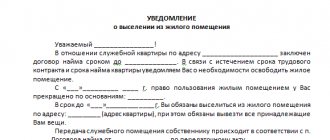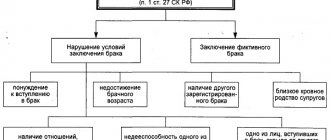New edition of Art. 74 of the Criminal Code of the Russian Federation
1. If, before the expiration of the probationary period, the conditionally convicted person has proven his correction by his behavior, compensated for the damage (in whole or in part) caused by the crime in the amount determined by the court decision, the court, upon the proposal of the body exercising control over the behavior of the conditionally convicted person, may decide to cancel the conditional sentence conviction and the removal of a convicted person's criminal record. In this case, the suspended sentence may be revoked after the expiration of at least half of the established probationary period.
2. If a conditionally convicted person has evaded fulfilling the duties assigned to him by the court, has evaded compensation for damage (in whole or in part) caused by the crime in the amount determined by the court decision, or has committed a violation of public order for which he was brought to administrative responsibility, the court upon the proposal of the body specified in part one of this article, may extend the probationary period, but not more than by one year.
2.1. If a conditionally convicted person, during an extended probation period in connection with his evasion of compensation for damage caused by a crime, in the amount determined by a court decision, systematically evades compensation for said damage, the court, upon the proposal of the body specified in part one of this article, may also make a decision on the revocation of a suspended sentence and the execution of a sentence imposed by a court verdict.
3. If a conditionally convicted person, during the probationary period, systematically violated public order, for which he was brought to administrative responsibility, systematically failed to fulfill the duties assigned to him by the court, or escaped control, the court, upon the proposal of the body specified in part one of this article, may make a decision on the revocation of a suspended sentence and the execution of a sentence imposed by a court verdict.
4. If a conditionally convicted person commits a crime through negligence or an intentional crime of minor or medium gravity during the probationary period, the issue of canceling or maintaining the conditional sentence is decided by the court.
5. If a conditionally convicted person commits an intentional grave or especially grave crime during the probationary period, the court shall revoke the conditional sentence and impose a punishment on him according to the rules provided for in Article 70 of this Code. According to the same rules, punishment is imposed in cases provided for in part four of this article.
6. The rules established by parts four and five of this article also apply if the crimes specified in these parts were committed before the sentence providing for a suspended sentence came into force. In this case, trial of a new crime can take place only after the sentence providing for a suspended sentence has entered into legal force.
Probation
As we know, when assigning a suspended sentence, the court sets a probationary period for the guilty person. It is established so that the convicted person can prove his correction during this period. Moreover, if the convicted person was sentenced to imprisonment for a term of up to 1 year or a more lenient punishment, then the probationary period must be at least 6 months and cannot exceed 3 years, and if imprisonment was imposed for a term of more than 1 year, then the probationary period must be at least 6 months and no more than 5 years.
Let us note that if the convicted person, before the expiration of the probationary period, proved by his behavior his correction and at the same time compensated for the harm that was caused by the crime, then this is the basis for revoking the suspended sentence and expunging his criminal record.
But we should not forget that if the convicted person evades the fulfillment of the duties that were assigned to him by the court, and also evades compensation for the damage caused by the crime, and at the same time during the probationary period committed a violation of public order, as a result of which he was prosecuted to administrative liability, then if the specified grounds exist, the court may extend the probationary period, but not more than for 1 year.
Important issues regarding expungement of a criminal record
When considering expungement of a criminal record during a suspended sentence, it is important to consider the following:
- Work on discussing the right of convicted persons to reduce their sentence is considered by the authorized inspectorate. To achieve this, a set of actions is carried out, including an explanatory and introductory conversation.
- Early cancellation is possible upon provision of a controlling person if there are compelling reasons for this. In particular, the convicted person must prove the right to use such an option by his positive behavior.
- An application for expungement of a criminal record under a suspended sentence is possible no earlier than after 50% of the period allotted by the court has expired. If the judge's decision is positive, the decision will contain information about the fact that the criminal record has been expunged.
- Many factors can indicate a person’s correction - the absence of violations within the established period, compliance with the obligations assigned to the convicted person, positive reviews from work and from neighbors.
- The decision-making process takes into account the attitude of the convicted person to the crime committed. It is important to fully admit guilt, cover damages and take other actions aimed at smoothing out the consequences.
When the established requirements are met, representatives of the inspection invite the person to fill out an application and ask for the application of the specified incentive measure. Here the person indicates his attitude to the deed and the consequences, and also provides other data that contributes to making a positive decision.
What responsibilities does the court impose on a conditionally convicted person during the probationary period?
1) Do not change your permanent place of residence, work, or study without notifying the penal inspection. 2) Do not visit certain places. 3) Undergo treatment for alcoholism, drug addiction, substance abuse, or a sexually transmitted disease. 4) Work or continue studying in a general education organization.
The list of responsibilities is open, so it is possible that the court may impose other duties on a conditionally convicted person that will contribute to his correction, but this is decided by the court.
Opportunity to improve
A suspended sentence is the possibility of canceling and replacing the real punishment in the form of imprisonment for citizens and disbat for military personnel. If the punishment does not exceed an eight-year term, the court may consider that the convicted person can reform without actually staying in a colony or prison (read more about correctional colonies in the Russian Federation here, and find out more about prisons in the Russian Federation in this material).
Also, a number of mitigating circumstances may be a condition - the crime was committed for the first time or without intent, the defendant was in a state of passion or defended himself. Then the sentence is considered a suspended sentence and the person can continue to live a normal life, while being under the supervision of the penitentiary services.
However, not every convicted person has a chance to get off with a suspended sentence. This possibility is completely excluded:
- Any sexual harassment of children under 14 years of age.
- Crimes related to terrorist activities.
- Attacks on foreigners and members of international organizations.
- Recidivism is the repeated commission of crimes for which a person has already been convicted before.
Read more about the concept and features of suspended imprisonment here, and learn more about the differences between imprisonment and restriction of liberty, arrest and probation in this material.
Grounds for revoking a suspended sentence and imposing a real sentence
The grounds for revoking a suspended sentence may be the bad behavior of the convicted person during the entire probationary period. Thus, if a convicted person, during an already extended probationary period, evades compensation for damage caused by a crime in the amount determined by the court, or does this systematically, then this serves as the basis for the revocation of the suspended sentence and the execution of the criminal punishment imposed by the court verdict.
The next reason should be the systematic violation of public order and, in conjunction with this, the systematic failure of the convicted person to fulfill the duties assigned to him by the court, as well as evasion of control. Such actions of the convicted person are the basis for the revocation of the suspended sentence and the execution of the criminal punishment imposed by the court verdict.
This point requires some clarification. A systematic violation of public order is the commission by a probationer of two or more violations of public order within 1 year, for which he was brought to administrative responsibility. Systematic failure to fulfill duties is the commission of prohibited or failure to perform actions prescribed to a conditionally convicted person more than 2 times within 1 year, or prolonged (more than 30 days) failure to fulfill the duties assigned to him by the court.
Commentary to Art. 74 of the Criminal Code of the Russian Federation
The issue of revoking a conditional sentence is resolved in the presence of the person in respect of whom such a decision is made, except for the case when it is confirmed that the conditionally convicted person has escaped control.
The criminal law provides for several options for resolving the issue of canceling a suspended sentence, which have both positive and negative implications for the convicted person. In general, the execution of a suspended sentence ends upon expiration of the probationary period. This happens automatically, the criminal record is expunged on the basis of paragraph “a” of Part 3 of Art. 86 of the Criminal Code of the Russian Federation.
At the same time, a suspended sentence may be canceled by the court ahead of schedule upon the proposal of the body exercising control over the behavior of the suspended sentenced person, in the event that he proves by his behavior that he has reformed. Such a presentation to the court may be sent after at least half of the established probationary period has expired. If the court makes a positive decision on the issue of canceling the suspended sentence, the court decision must also contain an indication of the removal of such a convicted person’s criminal record (Part 1 of Article 74 of the Criminal Code of the Russian Federation).
It should be noted that there is no legislative definition of the concept of “proven his correction”. Therefore, it can with good reason be classified as an evaluative concept. Based on the documents submitted, the presence or absence of penalties for the period of serving the sentence, based on the attitude towards work, performance of assigned duties, etc., based on the position of the administration of the body executing the punishment, the position of the convicted person, his defense attorney, the court forms its own opinion about the personality of the convicted person and makes a reasoned decision.
The indication in the law that the court decides on the issue of canceling a suspended sentence and expunging a criminal record if the convicted person has proven his correction by his behavior does not contain regulations limiting the right of the convicted person to personally petition the court on this issue. There is no direct prohibition on appealing in Part 1 of Art. 399 of the Code of Criminal Procedure of the Russian Federation, which determines the judicial procedure for resolving issues related to the execution of a sentence.
———————————
Determination of the Constitutional Court of the Russian Federation of November 4, 2004 N 342-O // Bulletin of the Constitutional Court of the Russian Federation. 2005. N 2.
If, before the expiration of the probationary period, the conditionally convicted person has proven his correction by his behavior, the court, upon the proposal of the inspectorate, may decide to cancel the suspended sentence and remove his criminal record after the expiration of at least half of the established probationary period. Such a submission is submitted to the court when there is confidence that there is no need for strict control over the conditionally convicted person, since he justifies the trust placed in him.
The submission sets out data characterizing the personality of the conditionally convicted person, his behavior and the performance of the duties assigned to him by the court. Attached to the submission are characteristics from the place of work and study, information from the local police commissioner and the juvenile affairs unit of the internal affairs body about his behavior and lifestyle, as well as other documents confirming his correction.
If this issue is resolved positively, a corresponding note is made in the register, the local police commissioner, the passport and visa service, the juvenile affairs unit of the internal affairs body, and the administration of the organization (educational institution) where the probationer works (studies) are informed.
The negative consequences for the convicted person when deciding on the abolition of a suspended sentence are divided by the legislator into two options.
The first option is associated with the usual evasion of duties; the second option is with systematic or malicious failure to fulfill these duties.
A simple evasion from fulfilling the duties assigned to a convicted person is recognized as a one-time failure to fulfill them without good reason or the commission of a violation of public order, for which an administrative penalty is imposed on the convicted person.
If the conditionally convicted person fails to comply with the requirements established by the court, as well as in the presence of other circumstances indicating the advisability of supplementing existing duties, the head of the inspection submits to the court a proposal to assign additional duties to him.
If a conditionally convicted person has evaded fulfilling the duties assigned to him by the court or committed a violation of public order for which an administrative penalty was imposed on him, the inspectorate sends a proposal to the court to extend the probationary period for no more than one year.
Here we should pay attention to the fact that in relation to an administrative offense, it is the violation associated with an encroachment on public order that is taken into account. Administrative offenses of a different nature are not included in the content of evasion of duties. In this case, the court, upon the recommendation of the supervisory authority, may extend the probationary period, but not more than for one year. It should also be borne in mind that the probationary period can be extended beyond the maximum established by Part 3 of Art. 73 of the Criminal Code of the Russian Federation (otherwise the extension of the probationary period as an educational and warning measure loses all meaning).
If a conditionally convicted person evades the duties assigned to him by the court or if he violates public order, for which an administrative penalty was imposed on him, the inspection calls the conditionally convicted person, conducts a preventive conversation with him, takes away his explanation and issues a warning in writing about the possibility revocation of probation. A certificate of the conversation, an explanation and a warning are attached to the personal file of the probationer.
If a conditionally convicted person evades control over his behavior, the inspectorate takes initial measures to establish his location and the reasons for the evasion.
In the event of a systematic or malicious failure by a conditionally convicted person to fulfill the duties assigned to him by the court during the probationary period, or if the conditionally convicted person has escaped control, the head of the inspectorate sends to the court a proposal to revoke the conditional sentence and carry out the punishment imposed by the court verdict.
Systematicity and maliciousness are attributed by law only to failure to fulfill the duties assigned to a conditionally convicted person. In this case, systematicity should be understood as the commission of prohibited or failure to perform actions prescribed to a conditionally convicted person more than twice during the year, or prolonged (more than thirty days) failure to fulfill the duties assigned to him by the court, and maliciousness - failure to fulfill these duties after a written warning given by the supervisory authority on the inadmissibility of repeated violation of the established procedure for serving a suspended sentence.
A conditionally convicted person whose whereabouts have not been established for more than thirty days is recognized as absconding from control (Article 190 of the Penal Code of the Russian Federation).
The proposal to revoke a suspended sentence indicates specific facts of the convict’s evasion from fulfilling his duties, violation of public order, the time during which he did not appear at the inspection, what measures of influence were taken against him, how he reacted to them, as well as the presence of charges .
In relation to a conditionally convicted person whose whereabouts are unknown, the submission shall indicate the available information that he has escaped from the control of the inspectorate, as well as the results of the initial search activities.
Attached to the submission are characteristics from the place of work, study, information from the local police commissioner, the juvenile affairs unit of the internal affairs body about the behavior of the conditionally convicted person, his explanations and other documents.
If a conditionally convicted person, who, by virtue of Part 3 of Art. 73 of the Criminal Code of the Russian Federation established a maximum probationary period, evaded the performance of duties assigned to him or violated public order, for which an administrative penalty was imposed on him, the court, extending the probationary period, in accordance with Part 2 of Art. 74 of the Criminal Code of the Russian Federation, taking into account the behavior of the convicted person and other data characterizing his personality, may exceed the maximum term, but not more than one year (Part 2 of Article 74 of the Criminal Code of the Russian Federation).
If the court refuses to satisfy the inspection’s proposal to extend the probationary period or cancel the conditional sentence, the next proposal is submitted to the court after the probationer commits another violation of public order, which resulted in the application of administrative penalties, or continues to fail to fulfill the duties assigned by the court.
Upon expiration of the probationary period, control over the behavior of the conditionally convicted person ceases, and he is removed from the register with the penal inspection.
The supervisory authority may raise before the court the question of canceling the suspended sentence and the actual execution of the punishment imposed by the court verdict. And in this case, the court can satisfy or reject the request of the supervisory authority set out in the submission.
However, in addition to failure to fulfill the duties assigned by the court to the convicted person, the law also provides for other grounds for changing the legal status of the conditionally convicted person. Such grounds are the commission of a new crime by a conditionally convicted person during the probationary period.
The issue of canceling (or maintaining) a suspended sentence and assigning punishment to a conditionally convicted person when he commits a new crime during the probationary period is resolved in different ways.
When deciding on the possibility of canceling or maintaining a suspended sentence in relation to a person who has committed a new crime through negligence or an intentional crime of minor gravity during the probationary period, it is necessary to take into account the nature and degree of public danger of the first and second crimes, as well as data on the identity of the convicted person and his behavior during the probationary period. If necessary, to clarify such data, a representative of the body exercising control over the behavior of the conditionally convicted person may be called to the court hearing. Having established that the conditionally convicted person behaved negatively during the probationary period, did not fulfill the duties assigned to him, violated public order, etc., the court, by virtue of Part 4 of Art. 74 of the Criminal Code of the Russian Federation can revoke a suspended sentence with the reasons for the decision made and impose punishment based on the totality of sentences.
The conclusion about the possibility of maintaining a suspended sentence is set out in the descriptive and motivational part of the sentence, and in its operative part it is indicated that the sentence regarding the suspended sentence for the first sentence is executed independently.
If a conditionally convicted person commits a crime through negligence or an intentional crime of minor gravity, the court, taking into account the circumstances of the crime, data characterizing the personality of the perpetrator, based on data on the performance of the duties assigned to him, may decide to cancel or maintain the conditional sentence. At the same time, revocation is allowed in case of negative behavior of the convicted person during the probationary period and involves the imposition of punishment based on the totality of sentences, and maintaining a suspended sentence means the possibility of independent execution of punishments based on the totality of sentences.
In case of a suspended sentence under the second sentence for a crime committed before the proclamation of the first sentence, for which a suspended sentence was also applied, the court in the operative part of the second sentence must indicate the independence of the execution of these sentences, since the probationary period established for a suspended sentence is not a punishment and cannot be absorbed by a longer probationary period, nor partially or completely suspended.
When committing careless crimes of moderate gravity (Part 1 of Article 219, Part 2 of Article 264 of the Criminal Code of the Russian Federation, etc.), the court must apply the rules of Part 4 of Art. 74 of the Criminal Code of the Russian Federation, and not part 5 of the same article.
If a conditionally convicted person commits an intentional crime of moderate gravity, serious or especially serious crime during the probationary period, the conditional conviction is canceled and the punishment for the totality of sentences is imposed according to the rules provided for in Art. 70 of the Criminal Code of the Russian Federation.
In these cases, resolving the issue of canceling a suspended sentence requires a thorough study of all documents in the case in order to exclude the possibility of repeated cancellation of a suspended sentence and re-attachment of the unserved part of the sentence, as is the case in some cases.
———————————
See, for example: Cassation ruling of the Judicial Collegium for Criminal Cases of the Supreme Court of the Russian Federation dated February 8, 2006 No. 41-O06-2.
In addition, when addressing the issues raised, in order to make the right decision, attention should be paid to such problems as criminalization and decriminalization of acts, retroactive effect of the criminal law, the presence or absence of a criminal record, etc. In our opinion, the Loktyushin case is indicative in this regard.
As it turned out during the consideration of the case by way of supervision, at the time of the commission of new crimes on December 24, 2004, Loktyushin’s actions, for which he was convicted by the verdict of April 3, 2001 (assistance in the acquisition of narcotic drugs), were decriminalized in connection with the issuance of a Government Resolution RF dated May 6, 2004 N 231 “On approval of average single doses of narcotic drugs and psychotropic substances for the purposes of Art. Art. 228, 228.1 and 229 of the Criminal Code of the Russian Federation”, which has retroactive effect.
Since these actions no longer constituted a crime, it turned out that, on the one hand, when the verdict of April 3, 2001 was passed, Loktyushin’s conditional sentence under the verdict of June 19, 1998 was unjustifiably revoked, and on the other hand, when the latter was passed on At the time of the sentence, the conditional early release from punishment under the sentence of April 3, 2001 was also unjustifiably revoked.
Under such circumstances, the Presidium decided to exclude from court decisions the instructions on sentencing using the provisions of Part 7 of Art. 79 and art. 70 of the Criminal Code of the Russian Federation and the release of Loktyushin from custody.
———————————
Certificate on the results of summarizing the work of the supervisory authority of the Moscow City Court in criminal cases for 2006.
Quite often in practice there are situations when a suspended sentence is revoked for crimes committed before the suspended sentence. In such cases, the rules of Art. Art. 69 and 70 of the Criminal Code of the Russian Federation are not applied, and sentences are executed independently.
———————————
See, for example: Bulletin of the Supreme Court of the Russian Federation. 2000. N 6. P. 12; Bulletin of supervisory practice of the Moscow Regional Court for Criminal Cases for 2005.
The possibility of revoking a suspended sentence and imposing punishment according to the rules of cumulative sentences complies with the principles of criminal law and the Constitution of the Russian Federation.
As noted by the Constitutional Court of the Russian Federation, the federal legislator has the right to provide in the criminal law both the possibility of conditional sentencing of a person found guilty of committing a crime (Article 73 of the Criminal Code of the Russian Federation), and the possibility of canceling this conviction if the conditionally convicted person violates the requirements established by law (Article 74 Criminal Code of the Russian Federation). Having secured it in Part 5 of Art. 74 of the Criminal Code of the Russian Federation, the rule according to which, if a conditionally convicted person commits an intentional crime of moderate gravity, an intentional grave or especially grave crime during the probationary period, the court revokes the conditional conviction and sentences him to a cumulative sentence with the addition of partially or fully unserved punishment under the previous sentence, the legislator also did not go beyond the limits of his powers.
This provision of criminal law, designed to ensure the inevitability and fairness of responsibility for crimes, as well as the execution of the punishment that was previously imposed by a court verdict, but was not executed, does not violate constitutional rights, since it does not provide for the possibility of re-imposing punishment for a crime for which a person already convicted. Moreover, it consolidates the power of the court, taking into account, in particular, the duration of the probationary period and the convict’s compliance with the duties assigned to him by the court, to add to the punishment imposed by the last sentence only part of the punishment (and not the full punishment) not served by the conditionally convicted person.
———————————
Determination of the Constitutional Court of the Russian Federation of July 17, 2007 N 607-О-О // Constitutional justice in the CIS and Baltic countries. 2007. N 25 (special issue).
If, in relation to a conditionally convicted person, it is established that he is also guilty of another crime committed before the verdict in the first case, provided for in Art. 74 of the Criminal Code of the Russian Federation, the rules for canceling a suspended sentence cannot be applied.
Thus, B., previously convicted by the verdict of the Dmitrov City Court under Art. 30, part 1 art. 158 of the Criminal Code of the Russian Federation to two years of suspended imprisonment with a probationary period of three years, according to the verdict of the Lobnensky City Court, taking into account the changes made to the sentence, convicted under paragraph “a” of Part 2 of Art. 161 of the Criminal Code of the Russian Federation to five years in prison, on the basis of Part 5 of Art. 69 of the Criminal Code of the Russian Federation partially added the unserved sentence under the sentence of February 19, 1998 and finally imposed six years of imprisonment to be served in a general regime correctional colony.
In accordance with Art. 74 of the Criminal Code of the Russian Federation, the court may revoke a suspended sentence and order the execution of the sentence imposed in the case of:
- systematic or malicious failure by a conditionally convicted person to fulfill the duties assigned to him during the probationary period, or if the conditionally convicted person escaped control;
— the probationer commits a crime during the probationary period.
The specified list of circumstances on the basis of which a suspended sentence can be revoked is exhaustive. Consequently, if it is established in relation to a conditionally convicted person that he is also guilty of another crime committed before the verdict in the first case, provided for in Art. 74 of the Criminal Code of the Russian Federation, the rules for canceling a suspended sentence cannot be applied.
In such cases, the sentences in the first and second cases are executed independently on the basis of Part 5 of Art. 69 of the Criminal Code of the Russian Federation.
The crime for which B. was sentenced by the Lobnensky City Court on June 19, 1998 to five years in prison, was committed by him on January 17, 1998, i.e. before the Dmitrovsky City Court sentenced him on February 19, 1998, according to which he was sentenced to two years of suspended imprisonment with a probationary period of three years.
Consequently, in this case, when rendering the verdict of June 19, 1998, the court should not have applied the rules of Art. 74 of the Criminal Code of the Russian Federation and add to the imposed punishment part of the punishment imposed by the sentence of February 19, 1998. The sentence must be executed independently.
Taking into account the above, the presidium excluded from the verdict the indication of sentencing using Part 5 of Art. 69 of the Criminal Code of the Russian Federation, decided to carry out the verdict of the Dmitrov City Court independently.
———————————
See: Bulletin of supervisory practice of the Moscow Regional Court for Criminal Cases for 2005.
The rules for imposing punishment based on cumulative sentences apply not only when a person is convicted of a newly committed crime during the probationary period, but also in cases where the person, during the probationary period, committed a new crime for which he was convicted after its expiration under the first sentence of conditional sentence.
Does committing a crime affect the replacement of a suspended sentence with a real punishment?
If a conditionally convicted person, during the probationary period assigned to him, committed a crime of minor or moderate gravity through negligence or intentionally, then the issue of replacing the suspended sentence with a real punishment is decided by the court itself.
But if a conditionally convicted person commits a serious or especially serious crime during the probationary period assigned to him, then in this case the court will cancel the conditional sentence and impose a real punishment on the perpetrator, while when imposing a punishment based on the totality of sentences, the punishment imposed according to the last court verdict will be partially or the unserved part of the sentence under the previous court verdict is added in full.
General provisions
According to the Criminal Code of the Russian Federation (Article 86), a criminal record represents the legal status of a citizen convicted of committing a criminal act. The result of conviction is the appearance of certain consequences. If the court decided on a suspended sentence (without the actual imprisonment of the guilty person), such punishment also applies to the criminal record.
If the conditions stipulated by the judicial authority are not met, or if a new crime is committed, the suspended sentence is revoked and the culprit is sent to prison. A suspended sentence is an educational measure designed to calm down a person who has committed a crime and give him a chance to reform.
How to prove that you have improved?
If a convicted person wants to expunge his suspended sentence before its official end, he can submit a petition to the penitentiary inspectorate for early expungement of his criminal record.
In this case, it is necessary to check whether the criteria prescribed in Article 74 of the Criminal Code of the Russian Federation are met. A number of circumstances allowing early termination of a suspended sentence:
- Half of the probationary period is already over.
- All obligations imposed by the court are fulfilled accurately and on time.
- Compensation for damages to the injured party has been completed.
- The citizen was not found to have violated the law.
Employees of the criminal-executive inspection prepare, on the basis of the petition, a proposal to remove the suspended sentence. This document contains an analysis of all materials attached to the petition confirming the possibility of canceling the punishment.
The necessary actions when filing a petition are regulated by Article 400 of the Criminal Procedure Code of the Russian Federation. The text of the petition should indicate as many arguments as possible in favor of canceling the criminal record. Each of the arguments must be documented by attaching materials. These may include certificates of completion of the necessary treatment, positive references from the place of employment, and documentary evidence of damages paid.
The convicted person can also go to court on his own, without using the assigned inspector as an intermediary. The petition is submitted to the same court where the suspended sentence was pronounced.
However, it is worth understanding that if the application is rejected, the citizen will be able to re-apply for the premature cancellation of the suspended sentence only after a year.
Example. A citizen who found his wife in bed with another man could not cope with a fit of jealousy and hit the homewrecker in the face with a dumbbell lying in the corridor. As a result, the unlucky lover lost four teeth, and his face was adorned with purple bruises. The court found that the temperamental husband was in a state of passion when he struck his opponent.
According to Article 113, the man was given 2 years of forced labor, but after hearing explanations in court about what a serious shock the consequences of his rage were for the man, he eased the sentence to probation. The probationary period was one year, plus the citizen was obliged to pay all expenses for treating the victim’s jaw, including prosthetics for lost teeth.
The man managed to pay for the necessary procedures for six months without any problems; he had no problems with the law. As a result, he filed a petition to terminate his probation. The request was granted - checks for payment for treatment and a written assurance from the victim that there were no complaints were attached to the text of the petition.





